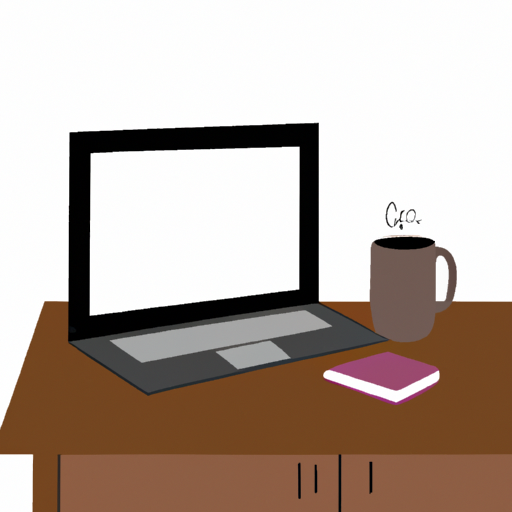The Benefits of Working in an Office
The benefits of working in an office are plentiful. From the ability to collaborate and network, to the ability to access resources and amenities, the advantages of working in an office far outweigh the disadvantages.
For starters, working in an office environment provides the opportunity to collaborate with teammates, which can be beneficial for problem-solving and exploring new ideas. Working in an office can also act as a great networking opportunity; in-person conversations and interactions with colleagues can help to create and strengthen relationships.
Another advantage of an office setting is access to resources. Conference rooms and other office amenities can come in handy for team meetings or brainstorming sessions. Additionally, office spaces generally have the necessary equipment to complete tasks, such as computers, printers, and scanners.
Finally, working in an office can be helpful for staying focused and productive. When surrounded by other coworkers, it can be easier to stay on task and accomplish daily tasks. The structure and organization of an office environment can also help to keep employees motivated and energized.
Overall, the benefits of working in an office are numerous. From the ability to collaborate and network, to the access to resources and amenities, the advantages of office life are hard to ignore. Whether you’re working on a team or independently, the atmosphere of an office can provide unique opportunities to grow, learn, and succeed.

The Disadvantages of Working from Home
The idea of working from home has become increasingly popular in recent years. While there are many advantages to working from home, it’s important to consider the disadvantages as well. Working from home may sound like the perfect work-life balance, however, there can be challenges that come with this type of work.
To start, one of the primary drawbacks of working from home is the lack of social interaction. Working from home can be lonely and can lead to feelings of isolation. Not having the opportunity to interact with colleagues can be hard for some individuals. Moreover, it can be difficult to be motivated to work when there’s no one around to hold you accountable or inspire you. Not having the natural energy that comes from working in a team environment can be a challenge.
Another disadvantage of working from home is the lack of resources that comes with it. When working in an office, employees have access to a variety of resources that can help them do their job. These resources may include office supplies, technology, and even coworkers who can provide technical support. But when working from home, you are limited to the resources you have in your space. As such, it can be hard to complete certain tasks without the proper tools.
Furthermore, working from home can be a distraction. It can be hard to stay focused when there’s constant noise or activity in the home. This can be especially true for those with young children who may need more attention. Without a proper work-life balance, it can be difficult to stay productive when working from home.
Finally, working from home can be a challenge if you are not organized. Without the structure of an office, it can be hard to stay on top of your tasks if you don’t have a plan. It’s important to set boundaries and have a daily routine in order to stay productive.
Overall, working from home has its advantages and disadvantages. While it can be beneficial in terms of flexibility and work-life balance, it can also be a challenge in terms of staying organized, motivated and having access to resources. It’s important to consider all of the pros and cons before making a decision about whether working from home is right for you.

The Benefits of Working from Home
If you’ve been considering a switch to working from home, there’s no better time than now! Working from home has become increasingly popular and with good reason – it has a lot of benefits that you won’t find in a traditional office setting. In fact, studies have shown that people who work from home are happier and more productive than those who work in an office. Here are some of the top benefits of working from home.
First, working from home gives you the freedom to work when and where you want. You don’t have to worry about being stuck in an office all day, or having to be at a certain place at a certain time. Instead, you can work wherever and whenever you’d like. This can be especially great for those who don’t have a lot of flexibility in their schedules.
Second, working from home gives you the ability to set your own hours. You can work when it’s convenient for you, which can be great for those who have other commitments during the day. You don’t have to worry about fitting in with someone else’s schedule – you can work when it works best for you.
Third, working from home can help you save money. You don’t have to worry about commuting costs, buying lunch every day, or buying new clothes for the office. You can also save money on utilities, as you’re not using electricity or heating/cooling an office full of people.
Fourth, working from home can help you create a more relaxed and comfortable working environment. You can customize your workspace to your own preferences, which can help you stay focused and productive. You can also create a space that reflects your personality, so you’re more comfortable and enjoy your work more.
Finally, working from home can help you stay connected to your family and friends. When you’re in an office, you’re limited to the connections you make with coworkers. But when you work from home, you can stay in contact with the people you care about most. Plus, you can take advantage of the technology available to stay connected with clients and colleagues, as well.
Overall, working from home has a lot of advantages that you won’t find in a traditional office setting. It can give you the freedom to work when and where you want, set your own hours, save money, create a comfortable workspace, and stay connected with those you care about. If you’ve been thinking about switching to working from home, there’s no better time than now. You won’t regret it!

The Disadvantages of Working in an Office
Working in an office can be challenging. It can be difficult for many people to adjust to the rigid work environment, the long hours, and the overwhelming amount of responsibilities. Even though there are some benefits that come with working in an office, such as having access to a supportive team, there are also some major disadvantages.
The first disadvantage of working in an office is the lack of flexibility. Office hours are typically set in stone, which can make it difficult for those with outside commitments, such as childcare or other responsibilities. This can be especially difficult for those with an irregular work schedule, such as freelancers or entrepreneurs. Additionally, most offices require employees to work in person, making it difficult for those who prefer to work remotely.
Another downside to working in an office is the lack of privacy. Even if there are no cubicles, desks, or other distractions, it can be difficult to concentrate and focus on the task at hand when surrounded by colleagues and supervisors. This can be especially difficult for those who are more introverted and need more time to process.
In addition to the lack of flexibility and privacy, working in an office can also be draining due to the intensity and amount of work. Many offices require employees to work long hours, which can be difficult for those who have a busy lifestyle and need to fit in the rest of their responsibilities. Additionally, the pressure of meeting deadlines and expectations can be overwhelming and can lead to burn out.
Finally, there is the issue of office politics. Working in an office can be difficult due to the often-competitive environment and the need to constantly prove oneself to others. This can lead to a feeling of being constantly judged and can be difficult to navigate.
Overall, working in an office can be difficult and draining. The lack of flexibility, privacy, and intense workload can make it difficult to stay motivated and productive. Additionally, the intense office politics can make the work environment stressful and overwhelming. However, with the right attitude and support, it is possible to make the most of working in an office and to be successful.

What to Consider When Choosing Where to Work
When it comes to choosing where to work, there are many factors to consider. What works best for one person may not work best for another. There are pros and cons to both working from home and working in an office.
If you’re considering working from home, you’ll be able to avoid the daily commute and have more control over your environment. You’ll also have the freedom to take breaks whenever you need and have more control over your schedule. You may feel more relaxed and productive working from your own space, but there are potential downsides as well. Working from home can be lonely and isolating, and it can be difficult to stay motivated without the structure of a traditional workplace. You may also miss out on important opportunities to collaborate with colleagues or attend networking events.
Working in an office can help you stay organized and focused, while also providing you with the opportunity to collaborate and network with other professionals. You’ll also have access to resources and support from colleagues and supervisors, and you can take advantage of perks like free coffee and snacks. However, there are downsides to consider, too. Office environments can be stressful, noisy, and distracting. You’ll have to contend with a daily commute and more rigid work hours, and you may have less control over your environment.
Ultimately, the decision of where to work comes down to personal preference. If you’re looking for flexibility, working from home may be the best option for you. If you’re looking for structure and collaboration, an office setting may be the way to go. Consider your needs and lifestyle and make the decision that works best for you.
No matter where you choose to work, it’s important to make sure that your space is comfortable and ergonomically sound. Invest in quality equipment, furniture, and supplies to ensure that you’re working in a safe and supportive environment. Take regular breaks and make sure that you’re getting enough sleep and exercise. Above all, be sure to take care of yourself and find ways to stay inspired. Working in a space that nurtures your creativity and productivity can make all the difference.

The Impact of Working from Home on Mental Health
With the current pandemic, more and more people are working from home than ever before. Working from home offers many advantages such as the ability to be more productive and efficient, the flexibility to set your own hours and the comfort of being in your own space. However, working from home can also have an impact on your mental health, particularly if you are not used to it.
Many people find that working from home can be emotionally and mentally taxing. There can be feelings of isolation, especially if you live alone or don’t have access to the same kind of human interaction you would have in an office. It can also be difficult to stay motivated and focused when you are working in an environment that is not designed for productivity.
On the other hand, working from home can also have positive effects on your mental health. For instance, you don’t have to deal with the stress of daily commutes or the pressures of working in a corporate environment. You also have the freedom to take breaks whenever needed and create a comfortable atmosphere to work in. Many people find that working from home helps them to stay organized and allows them to focus more on the tasks at hand.
It is important to recognize that both working from home and working in an office have their own advantages and disadvantages. Working from home can be a great way to boost productivity and make use of your own space, but it is also important to be mindful of the potential impact it can have on your mental health. Take the time to create a workspace that is comfortable and inviting, as well as one that offers the support and interaction you need to stay focused and motivated.
It is also important to remember that it is okay to take breaks and take time for yourself. Make sure you schedule time for activities that help to reduce stress and anxiety such as exercise, yoga, or even just taking a walk. Working from home can be a great way to stay productive, but it is important to be aware of the potential impact it can have on your mental health and to take the necessary steps to create a healthy work-life balance.

The Impact of Working in an Office on Mental Health
Working in an office can have a positive impact on mental health, particularly for those who feel isolated when working from home. Employees who work in an office environment often benefit from the social interaction and camaraderie of their colleagues. This sense of connection and community can help to boost morale and increase productivity. Working in an office can also help to reduce feelings of loneliness, depression, and anxiety, which are all common issues for people who work from home.
When working in an office, the physical environment can also have a positive effect on mental wellbeing. Studies have found that natural light and green spaces can reduce stress levels, improve concentration, and boost productivity. An office environment that is well-lit and comfortable can also provide a sense of peace and relaxation, which can help to reduce stress and clear the mind.
Additionally, employees who work in an office often have access to more resources and support than those who work from home. They have the opportunity to collaborate with their colleagues more easily, and they are more likely to receive feedback and guidance from their manager or supervisor. This can help to create a sense of purpose and a feeling of accomplishment, which are both important for mental health.
On the other hand, working in an office can also have a negative impact on mental health. It can be difficult to disconnect from work when the office is only a few steps away, leading to feelings of burnout and exhaustion. Long hours, tight deadlines, and high-pressure work environments can also lead to anxiety and depression.
Additionally, some workers may find the office environment to be too distracting, which can be detrimental to productivity. This can lead to feelings of frustration and resentment, which can further compound mental health issues.
In conclusion, working in an office can have both positive and negative effects on mental health. However, with the right support, a comfortable office space, and adequate resources, employees can greatly benefit from working in an office. It is important to prioritize mental wellbeing in any work environment and to find the right balance between office and home-based work.

The Impact of Working from Home on Productivity
When it comes to work and productivity, working from home can have both positive and negative effects on performance. Working from home has become increasingly popular in recent years as technology has made remote work a more viable option. On one hand, remote workers tend to have more flexibility as they can set their own schedule and take breaks when they need them. This can lead to increased productivity as they can avoid distractions and take breaks when they need to. On the other hand, working from home can lead to increased isolation, which can make it difficult to stay focused and motivated.
When it comes to productivity, the key to success is to find the right balance between flexibility and structure. Working from home can make it easier to break away from the traditional office routine and create an environment that’s tailored to your individual needs. For example, if you’re more productive in the morning, you can set your own hours and start work earlier. Or if you’re a night owl, you can work later in the evening and make the most of your creative energy.
However, remote work can also lead to procrastination and lack of structure. If you don’t have a set routine, it can be difficult to stay motivated and productive. It’s important to have a designated workspace that’s free from distractions and to set boundaries with family and friends so you can stay focused on your tasks.
No matter where you work, one of the key ingredients of productivity is self-discipline. It’s important to have a plan for your day and to set achievable goals. By setting realistic expectations and creating a daily routine that works for you, you can make the most of your time and ensure that you’re productive.
Overall, working from home can be a great way to increase your productivity if you’re able to find the right balance between flexibility and structure. By creating an environment that works for you, setting achievable goals and maintaining self-discipline, you can make the most of your time and get the most out of your work.

Evaluating the Financial Impact of Working from Home vs. Working in an Office
As the trend towards remote work increases, so too does the need to understand the financial implications of working from home vs. working in an office. On the one hand, working from home can provide a significant financial benefit to employees in terms of reduced transportation costs, as well as the ability to deduct home office expenses from their taxes. At the same time, there are some negative financial impacts associated with working remotely that should be considered.
First, it’s important to understand the cost of the technology and equipment needed to work remotely. This can include laptops, cell phones, software, and more. While this cost may be tax deductible, it is still an up-front cost that should be factored into the overall financial impact of working remotely. Additionally, it is important to consider the cost of internet access and other utilities that are necessary to maintain a good work environment at home.
In contrast, the financial impact of working in an office can be much more predictable. Most employers provide desk space, computers, internet access, and other office supplies for their employees, which eliminates the need for employees to purchase these items on their own. In addition, the cost of commuting to and from the office is typically covered by the employer, which can be a major cost savings for employees.
Another factor to consider when evaluating the financial impact of working from home vs. working in an office is the potential for lost wages due to absenteeism. Working from home can be a great way to avoid the costs associated with taking time off from work, but this is not always the case. In some cases, an employee may be unable to work from home due to family or medical reasons, and this can lead to lost wages.
Finally, it’s important to consider the potential for increased productivity when working from home. Studies have shown that employees who work remotely tend to be more productive than their office-based counterparts, which can lead to higher wages and bonuses. Additionally, remote workers are often able to work more flexible hours, which can lead to better work/life balance and improved job satisfaction.
Overall, the financial impact of working from home vs. working in an office depends largely on the individual financial situation and preferences of the employee. While there are some definite benefits to working from home, it is important to consider the potential costs associated with remote work and make sure that the financial impact is beneficial to the employee. With a little bit of research and careful consideration, employees can make an informed decision about their work situation and ensure that they are making the best financial decision for their own situation.





